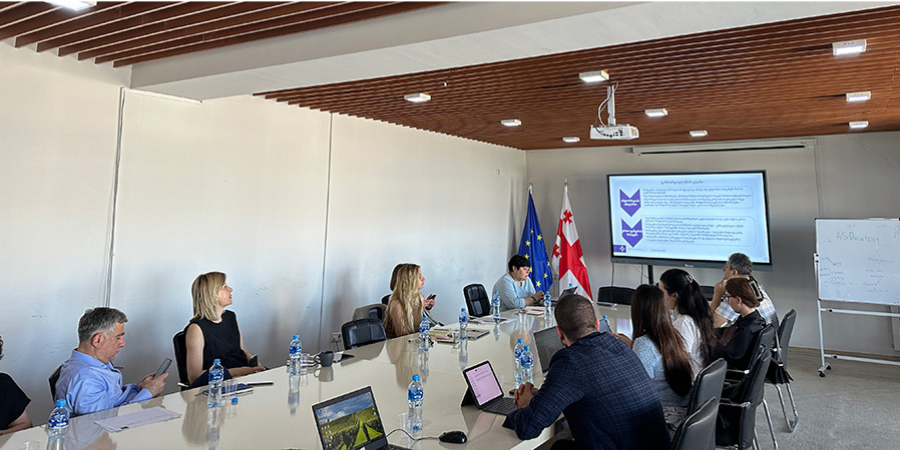Digitalization of Environmental Permits in Georgia – Technical Assessment

EBRD;
Georgia;
EBRD;
15.07.2024
11.11.2024
South Caucasus;
The project aims to support the Government of Georgia (GoG) in its green transition by integrating new environmental permits into a unified electronic system, aligned with EU standards. This initiative focuses on enhancing environmental governance through comprehensive digital integration. It is led by the National Environment Agency (NEA) through the Ministry of Environmental Protection and Agriculture (MEPA).
Its main objective is to analyze the existing environmental permitting process in the country and then propose a digital solution within a single window system. This would allow for the integration and digitalization of the permitting process, thereby improving both efficiency and transparency.
In the course of the project, the following key steps are being taken:
- Assessing existing spatial information and databases across MEPA units, and then developing a unified spatial map to enhance decision-making processes;
- Optimizing procedures and improving coordination among stakeholders involved in environmental permit issuance;
- Evaluating and updating the legal framework to ensure its compatibility with digital systems and EU standards.
- Enhancing IT infrastructure and implementing robust data security measures to support the digital platform’s functionality; and
- Ensuring the transparency and accessibility of environmental assessment documents through digital platforms.
In particular, PMCG is providing a comprehensive range of services as part of the project:
Stakeholder Requirements Identification and Mapping – Consultation with various stakeholders, including private sector representatives and officials from the NEA and the MEPA to identify and map their diverse requirements for integrating environmental permits procedures.
Service Functions Design (Application Architecture Prototype) – Development of a blueprint outlining the services and functions required for the single window system, including sub-systems and software components. This also includes cost estimates for software procurement, hardware requirements, piloting, training, and maintenance.
Legal Framework Analysis – Evaluation of existing laws and regulations related to environmental permits, and issuing of recommendations for potential legislative amendments to support electronic data submission and address regulatory constraints on information sharing and storage.
Business and Governance Model Design – Production of a proposal for a cost-effective financial and business model for the management and maintenance of the single window system for environmental permits. This encompasses oversight, operational governance, and sustainability aspects.
IT Infrastructure and Solutions Execution – Assessment of the MEPA’s current IT infrastructure and devising recommendations for its improvement. This entails identifying the necessary software, hardware, IT, and network infrastructure to develop and implement the single window. It also involves considering the adaptability of future permit types and technological advancements.
Data Security Blueprint – Creation of a plan for the secure storage and protection of data exchanged through the single window, drawing on international best practices to prevent unauthorized access and data corruption.
For all of the above tasks, PMCG will undertake three phases, comprising thorough analysis, strategic planning, and adherence to practical implementation guidelines under the single window principle.